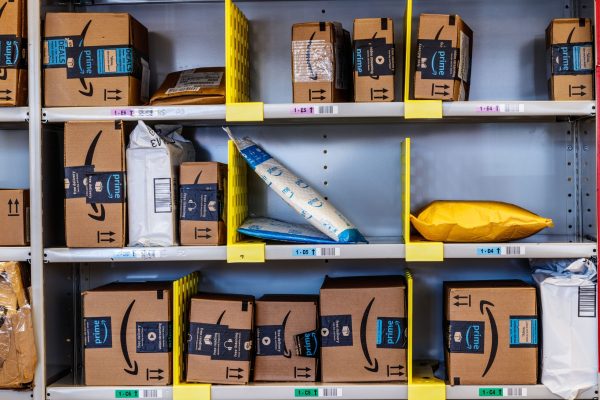Novel coronavirus COVID-19 has brought the world to a halt, with global distribution and logistics services disrupted in unprecedented ways. Heightened border controls and customs regulations, lack of capacity for both long-haul and last-mile fulfilment, and raised consumer expectations have combined to present a real challenge for businesses and their logistics partners.
As Europe starts to open up again, it’s clear that logistics, distribution and supply chains solutions will never go back to the pre-COVID ways. So in a post-coronavirus world, what will logistics look like?
Restarting operations
The first and most important challenge will be to restart operations safely. Protecting customers and staff from contracting COVID-19 must be your number one priority. Initially, that will mean adhering to government guidelines and staying up to date with changes in legislation on a day-to-day basis, whilst conducting risk assessments to ensure no one is put in danger.
Social distancing up to two metres; hand washing and sanitising; deep-cleaning offices and warehouses; and PPE and face coverings will be the new normal, as well as temperature checks and supporting staff to stay home if they present with coronavirus symptoms.
Stress testing
Poor flexibility, slow reaction times and the hidden cost of single-source dependencies have all come to light in the wake of the pandemic. To strengthen supply chains in the future will require upheaval and innovation at every level, but nowhere more so than in the emergence of regionalisation. Forward stocking locations and local supply will be essential to establish a flexible and adaptable supply chain.
Just as the banks are subject to regular stress-tests following the financial crisis of 2008, the future of logistics will see stress testing in supply chains to ensure business models are optimised and able to cope in catastrophic events, from extreme weather to pandemics and social unrest.
Going digital
As millions around the world have gone online to work and socialise through lockdown, digital innovation will be central to future logistics operations. Businesses must implement their digital transformation strategies now, and accelerate any that have been lagging behind.
Visibility will be key to ensure supply chains are responsive, flexible and effective. Capabilities like real-time order monitoring and end-to-end inventory visibility are essential now, as well as enhancing communication with other supply chain links, suppliers and carriers, customers and remote workers.
Sprint Logistics: supporting you through COVID-19
For support and advice about your logistics solutions in this challenging time, Sprint Logistics’ expert team is on hand to answer any queries you may have. Contact us today to find out how we can help you restart your business operations safely and securely.




